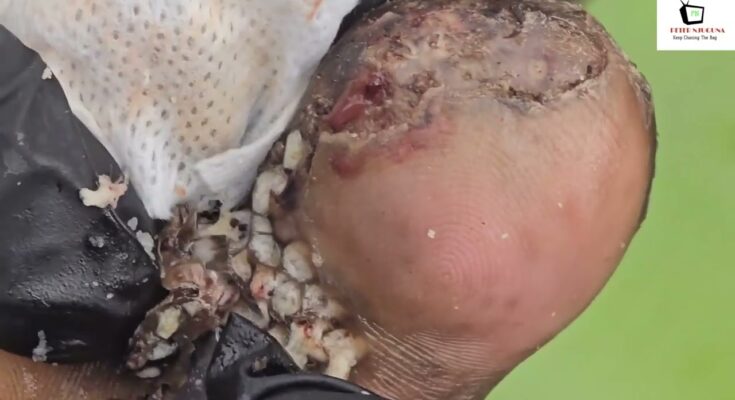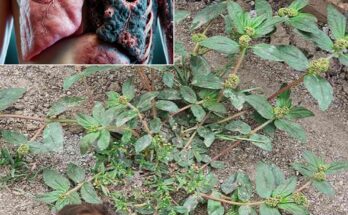The term “jigger” refers to the Tunga penetrans flea, a parasitic insect found in tropical and subtropical regions, including Africa. This tiny sand flea is considered one of the most dangerous pests in affected communities because of the severe health and socioeconomic impact it can have.
Why the Jigger Is Dangerous
- Parasitic Nature: The female jigger burrows into the skin of humans and animals, typically in areas such as feet, hands, and under toenails, to lay eggs. This process causes intense irritation, pain, and potential infections.
- Health Complications:
- Tungiasis: The condition caused by jigger infestation, characterized by swelling, ulcers, and secondary infections.
- Severe Infections: Untreated infestations can lead to cellulitis, sepsis, or gangrene.
- Disability: In advanced cases, individuals may suffer from permanent physical deformities or immobility.
- Social and Economic Impact:
- Stigma: Infestation can lead to social ostracism.
- Lost Productivity: Those affected, especially children, may be unable to attend school or work.
- Poverty Cycle: Jigger infestations are closely associated with poverty, as poor living conditions and lack of proper footwear contribute to the problem.
Areas Most Affected
Jiggers are common in sub-Saharan Africa, particularly in regions with:
- Sandy soils
- Poor hygiene practices
- Limited access to healthcare
- High poverty rates
Countries like Uganda, Kenya, Tanzania, and parts of Nigeria report the highest cases of jigger infestations.
Prevention and Treatment
- Prevention:
- Wear closed footwear.
- Maintain clean living conditions.
- Use insecticides in high-risk areas.
- Treatment:
- Careful extraction of the embedded fleas.
- Application of antiseptics and antibiotics to prevent infection.
- Improved healthcare access for infested individuals.
Organizations Tackling the Issue
Several NGOs and health organizations, like Ahadi Kenya Trust and Sole Hope, work to alleviate the suffering caused by jiggers by providing treatment, raising awareness, and improving living standards in affected communities.
If you’re looking for more specific information or assistance on jigger eradication efforts, let me know!

